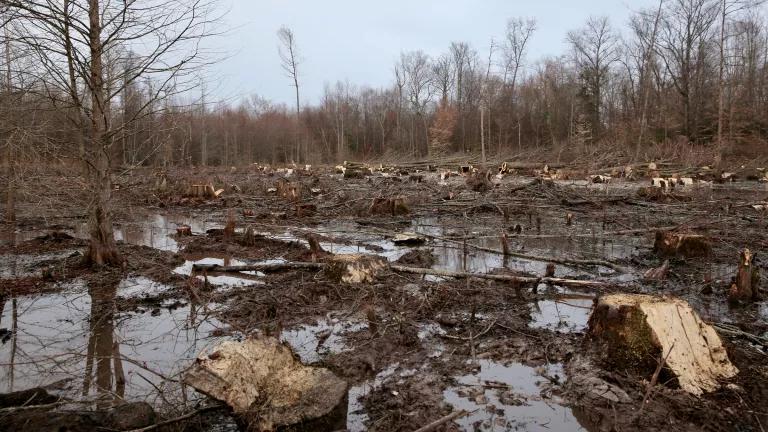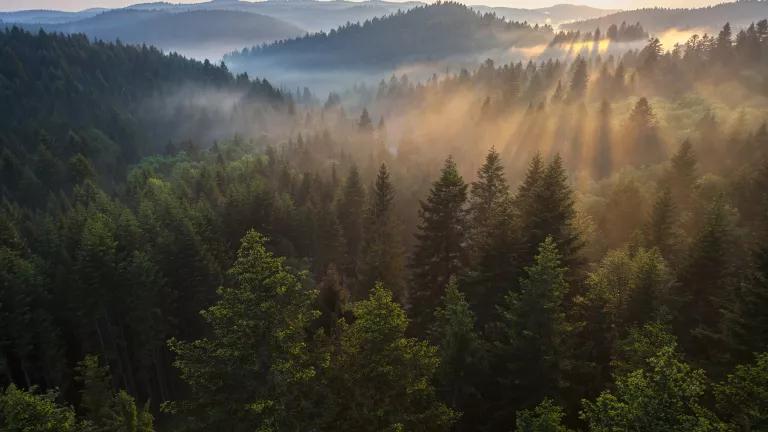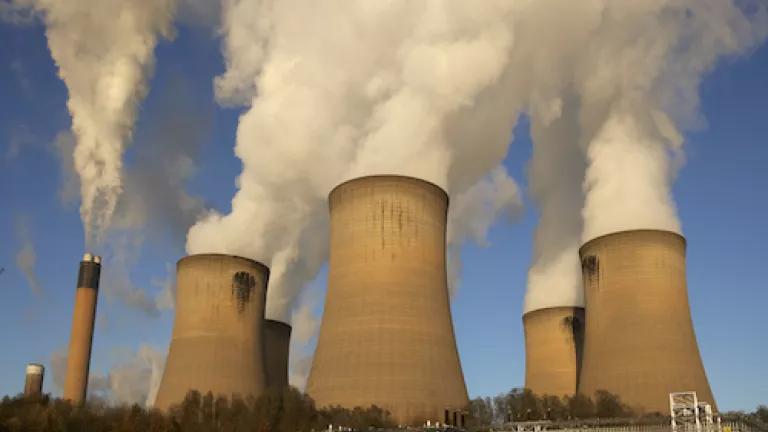
Clearcutting for biomass in Kurgja, Pärnu county, Estonia (C) Karl Adami
A new analysis published by Cut Carbon Not Forests — a coalition of which NRDC is an active member –shows that wood pellets imported into the UK from Estonia to burn for dirty biomass energy likely violates the UK’s legally binding sustainability criteria.
To try to ensure its imported biomass (i.e., wood pellets) does not harm the environment in the countries where it’s logged, the UK has sustainability criteria for biomass that require, among other things, that the wood pellet sourcing minimise harm to ecosystems and maintain biodiversity.
However, this new report – which is based on investigations conducted by Greenpeace Netherlands and Estonian Fund for Nature (among others) – suggests that logging for biomass in Estonian forests could violate these standards by using destructive practices such as:
- Logging in protected areas (including those protected under Estonian law and those designated as Natura 2000 reserves);
- Damage to watersheds around rivers and streams;
- Damage to carbon-rich peat soils;
- Logging in ways that harm biodiversity (including clearcutting and other types of harmful logging in habitat for species protected under EU and/or Estonian law due to their imperiled status); and
- Logging of culturally significant trees.
Estonian wood pellets enter the UK biomass supply chain largely through imports from Graanul Invest (Estonia’s largest pellet producer) to Drax (the UK’s largest biomass power station and largest polluter!). Since 2018, Drax has imported wood pellets from Estonia, with over half of such imports coming from whole, standing trees—a category of biomass that scientists have concluded is particularly high-carbon. In 2021, whole trees accounted for 59% of Drax’s imports from Estonia, despite industry claims that they only burn wood pellets made from the leftovers of logging.
Even Estonia’s most highly protected forests have not escaped the rampant logging for wood pellets. Between 2001 and 2019, Estonia’s Natura 2000 areas lost an area almost the size of Manchester, due in part to biomass production. While the Estonian government recently claimed to have suspended logging for just over two years in these reserves, this moratorium only covers forests specifically protected as rare forest habitats (about 11% of forested land in Natura 2000 areas). As such, the ban does not apply to logging in most (89%) Natura 2000 forests, meaning the biomass industry continues to pillage some of Europe’s most prized natural areas.
This intensive and expansive logging is harming Estonia’s wildlife, including rare species of birds, moss, fungi, and lichens. This includes species protected under both Estonian and EU law, like the three-toed woodpecker and the capercaillie, the latter of which has declined by 30% over the last 20 years.
What is the use of sustainability standards if they allow the clearcutting of some of our planet’s most treasured natural areas? The UK Government should immediately conduct a direct investigation of biomass sourcing Estonia for the UK energy market, to determine whether such imports comply with current biomass laws and halt all imports of wood pellets produced in or using wood from Estonia until this investigation has been completed. And, meanwhile, it should stop subsidising the biomass industry with over £1 billion per year. An industry that contributes to this kind of devastation is clearly not worthy of bill payers' money.




